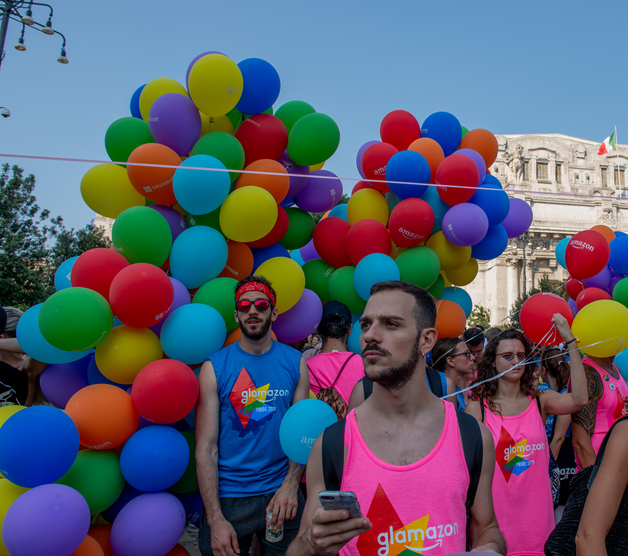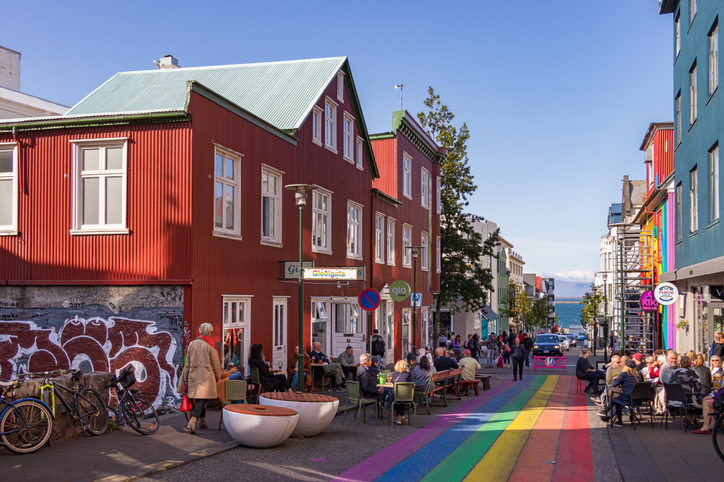It wasn’t too long ago that LGBT people had to go on holiday in the same manner that they were obliged to live by society: in secret. They were forced to hide their sexual orientation upon arrival in the holiday destination out of fear of being discriminated against, with no specific market existing for them.
Much of Africa and the Middle East continue persecuting and condemning homosexuality, with the death penalty being applied in countries such as Saudi Arabia and Iran. In many other countries such as Russia, homosexuality is legal but frowned upon by society. Aggressions, discriminations and homophobia—even from members of the government—are not uncommon.
Luckily, and despite the fact that members of this community continue to receive attacks in many countries, the LGBT community has seen a growth in tourism focusing on their tastes and needs in recent decades, with there now being many more gay-friendly destinations and services seeking the much-coveted “pink money”.

While many destinations, including those mentioned above, are still learning to live in the 21st century, these groups are made to feel welcome in other more tolerant markets where, quite frankly, establishments are keen to take their money.
Travel agencies, hotels, cruise liners, and an increasing numbers of gay-friendly establishments are now opening, as more and more countries are legalising gay marriage and passing more inclusive legislation.
The figures
To understand the huge impact that the LGBT market is having on the tourism industry, you should note that it represents 10% of worldwide tourism and up to 16% of the money spent on holidays. According to the World Travel and Tourism Council, this translates to 200 billion dollars every year.
One of the clearest examples of the advantages that this type of tourism can bring can be seen in Spain. Spain is considered to be one of the world’s most gay-friendly countries, with up-to-88% of the Spanish population supporting the normalisation of different sexual orientations. It was also one of the first countries in the world to legalise gay marriage.
As a consequence, Spain is considered as one of the preferred destinations of LGBT tourists, who go on 4-to-6 holidays per year and spend 33% more on their travels than the non-LGBT population. Furthermore, more than 50% of these tourists are professionals or entrepreneurs.
According to data from LGBTQ Capital, this sector contributed more than €6.1 billion to the Spanish GDP in 2018, which was only exceeded by the USA. As far as Europe is concerned, Spain enjoys 20% of the market share for LGBT tourism.
Various organisations have studied the impact of the collective, generating figures of between 4 and 6 trips per year and an expenditure of up to 33% more than the rest of the population. (Community Marketing&Insights).
In 2018, LGBT tourism contributed 6.1 billion Euros to the Spanish GDP, representing 0.46% of its annual total.
Many destinations now hold specific events for LGBT citizens/tourists, with these becoming a meeting point for members of this community. Examples of this include Madrid Gay Pride, New York City Pride, Amsterdam Gay Pride Canal Parade and Berlin Pride.
LGBT presence in FITUR
An example of the increasing representation of the LGBT community is the monograph section that has been developed at FITUR 2020, which this year has commemorated the 50th anniversary of the slogan “Gay Power” which was first coined in 1969 after the Stonewall disturbances, marking the start of the fight for gay rights.

In Spain, one of the most highly anticipated LGBT events is the Madrid Gay Pride Week, which is considered to be one of the world’s most important events of this type. This year’s slogan is “Ames a quien ames, Madrid te quiere”, which means “Whoever you love, Madrid loves you” in English. This event has been highly promoted in FITUR, where ‘Pride’ events in Ibiza, the Basque Country, Benidorm and Badajoz have also given a boost to gay tourism.

New incorporations
The legalisation of gay marriage not only represents social progress, as mentioned above, but can also help a country to generate wealth. The latest example of this can be seen in Costa Rica, where the implementation of this new legislation has led to a 1% increase in the country’s GDP from tourism, business and health.







